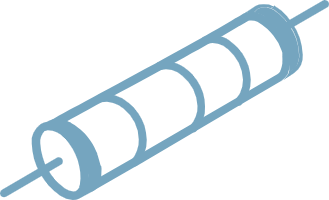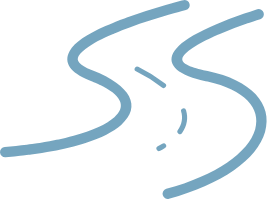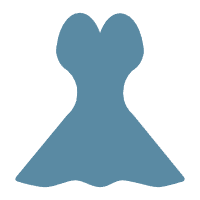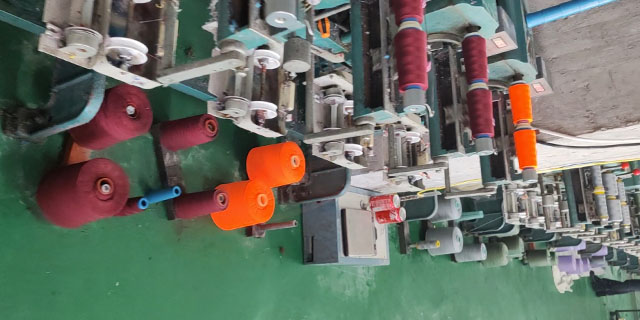Polyester sewing thread is one of the most commonly used types of sewing thread due to its high strength, excellent abrasion resistance, and superior color fastness. Among the various specifications of polyester thread, Polyester sewing thread 50/2 and Polyester sewing thread 50/3 are two of the most widely used. These threads differ in structure and performance, making them suitable for different sewing applications. In this article, we will provide a detailed comparison of Polyester sewing thread 50/2 and Polyester sewing thread 50/3, covering their key characteristics, applications, and tips for selection to help you better understand and choose the right thread for your sewing needs.


In the apparel industry, Polyester sewing thread 50/2 is ideal for lightweight garments like shirts, dresses, and lingerie, offering subtle stitching that complements delicate fabrics without compromising their appearance. Conversely, Polyester sewing thread 50/3 is better suited for heavier garments such as jeans, jackets, and outerwear, where strength and durability are essential. In-home textiles, 50/2 is commonly used for stitching lighter items like bed sheets, pillowcases, and duvet covers, ensuring a smooth, inconspicuous seam, while 50/3 is used for heavier textiles like curtains, sofas, and cushions, where the thread’s strength is necessary to handle daily use. Industrial applications require a high strength of 50/3, making it the preferred choice for products such as bags, shoes, automotive upholstery, and seat covers, which require robust seams. On the other hand, 50/2 is less common in industrial settings but may be used in lighter applications that don’t demand as much durability.
When choosing between the two, the thickness of the fabric is crucial—50/2 works best with lightweight materials like silk and chiffon, while 50/3 excels with heavier fabrics like denim and canvas. If the project requires fine, delicate stitching, 50/2 is the go-to, whereas, for stronger seams capable of withstanding heavy use, 50/3 is the better choice. For heavy-duty projects that demand high abrasion resistance, such as bags or upholstery, 50/3 ensures long-lasting durability, while 50/2 suffices for moderate durability needs, like shirts or bed linens.
-
 Thread Diameter and Strength
Thread Diameter and StrengthThe primary difference between Polyester sewing thread 50/2 and Polyester sewing thread 50/3 lies in their construction and strength. Polyester sewing thread 50/3 is made by twisting three single filaments together, resulting in a thicker diameter and higher tensile strength. This makes it more durable, and suitable for heavy-duty applications. On the other hand, Polyester sewing thread 50/2 is constructed by twisting only two filaments, resulting in a thinner diameter and relatively lower strength, which is ideal for lightweight applications.
-
 Abrasion Resistance
Abrasion ResistanceDue to the thicker diameter of Polyester sewing thread 50/3, it exhibits superior abrasion resistance compared to Polyester sewing thread 50/2. This makes it better suited for areas subject to frequent friction, such as seams that undergo regular wear or high-stress applications. Polyester sewing thread 50/2, with its finer diameter, is less durable in such conditions.
-
 Softness and Smoothness
Softness and SmoothnessWhile Polyester sewing thread 50/3 offers higher strength, Polyester sewing thread 50/2 is softer and smoother due to its thinner construction. This results in less noticeable stitching, making 50/2 ideal for delicate fabrics where fine, subtle seams are required. Polyester sewing thread 50/3, being thicker, may leave more visible seams, which can be desirable in heavy-duty applications but may detract from the appearance of lighter materials.
-
 Recommended Fabric Use
Recommended Fabric UsePolyester sewing thread 50/2 is particularly suitable for lightweight fabrics such as silk, chiffon, and fine cotton, where the thread needs to blend seamlessly with the material. Polyester sewing thread 50/3, with its thicker diameter, is better suited for heavier fabrics like denim, canvas, and upholstery materials. When choosing between the two, fabric thickness plays a crucial role in determining the appropriate thread.

-
Consultation
 The customization process begins with a detailed consultation, where we discuss the client's specific needs, including thread thickness, color requirements, and application-specific demands. Our team of experts works closely with the client to understand their unique requirements and provide recommendations.
The customization process begins with a detailed consultation, where we discuss the client's specific needs, including thread thickness, color requirements, and application-specific demands. Our team of experts works closely with the client to understand their unique requirements and provide recommendations. -
Quotation
 Once the requirements are clearly defined, we provide a detailed quotation that outlines the cost, delivery time, and other relevant details. Our quotations are transparent and comprehensive, ensuring that clients have a clear understanding of the costs involved.
Once the requirements are clearly defined, we provide a detailed quotation that outlines the cost, delivery time, and other relevant details. Our quotations are transparent and comprehensive, ensuring that clients have a clear understanding of the costs involved. -
Production
 Our production process is highly efficient and quality-focused, ensuring that the customized threads meet the highest standards of performance and durability. We use state-of-the-art equipment and rigorous quality control measures to produce threads that exceed industry standards.
Our production process is highly efficient and quality-focused, ensuring that the customized threads meet the highest standards of performance and durability. We use state-of-the-art equipment and rigorous quality control measures to produce threads that exceed industry standards. -
Shipping
 After production, the customized threads are carefully packaged and shipped to the client within the agreed timeframe. We offer reliable logistics solutions to ensure that the threads reach the client promptly and in perfect condition.
After production, the customized threads are carefully packaged and shipped to the client within the agreed timeframe. We offer reliable logistics solutions to ensure that the threads reach the client promptly and in perfect condition.
-
What is the specific difference between Polyester sewing thread 50/2 and 50/3?
Polyester sewing thread 50/2 is made of two strands of yarn, suitable for sewing light fabrics, with lower strength and suitable for fine sewing; while Polyester sewing thread 50/3 is made of three strands of yarn, with a thicker thread diameter and higher strength, suitable for sewing heavier fabrics and applications requiring higher durability.
-
Should I choose 50/2 or 50/3 to sew my product?
If your product uses light fabrics (such as silk, chiffon, etc.), it is recommended to choose 50/2, which can provide fine sewing effects; if it is heavy fabrics (such as denim, canvas, home furnishings, etc.), choose 50/3 because its strength and wear resistance are more suitable for these heavy fabrics.
-
In home textile products, what are the differences in specific scenarios for 50/2 and 50/3?
In home textile products, 50/2 is suitable for thin items such as bed sheets, quilt covers, pillowcases, etc., and can provide delicate stitching; while 50/3 is suitable for items such as curtains, sofa covers, cushions, etc. that need to withstand greater tension and durability.
-
How to determine the appropriate needle size and sewing tension?
For 50/2, it is recommended to use a thinner needle (such as 9-11 needle) and adjust the tension of the sewing machine to avoid too tight bottom thread affecting the sewing effect. For 50/3, you may need to slightly increase the needle size (such as 11-14 needle) to ensure strength and durability. Make sure the ratio of needle eye to sewing thread is 1:1.2, which can ensure smooth sewing effect.
-
I need a special color, can the customized service meet it? Can the customized color be guaranteed to be exactly the same as the sample I provided?
Our customized service can meet your special color needs. We use advanced dyeing technology and professional color matching system to ensure that the customized color is highly consistent with the sample you provide. Before production, we will provide samples for your confirmation to ensure that the color meets your requirements. If necessary, we can also perform color management according to your brand standards to ensure the color stability of each batch.
-
What are the color options for these threads?
Polyester Sewing Thread 50/2 and 50/3 are available in a variety of colors, and customers can customize the color as needed to meet different design requirements.
-
If I choose a custom service, how long will it take from order to delivery? Can it be expedited?
The lead time for custom services usually depends on the complexity of the customization and the order volume. Generally speaking, it takes 15-25 working days from order to delivery. If your project has urgent needs, we can provide expedited services. We will arrange the production plan according to your specific needs to ensure on-time delivery.
-
What are the quality standards of these two sewing threads? Are there any relevant certifications or test reports available?
Our sewing threads strictly follow international quality standards, including ISO 9001 quality management system certification and OEKO-TEX Standard 100 environmental certification. Each batch of products will undergo strict quality testing, including tensile testing, abrasion resistance testing, color fastness testing, etc. We can also provide detailed test reports according to your needs to ensure that the sewing threads you use meet the highest standards.
-
Do you provide samples for testing?
Many suppliers provide free samples for customers to test, but customers may need to pay for shipping. It is recommended to confirm the sample policy with the supplier before placing an order.
-
My order quantity may be relatively small. Is there a minimum order quantity requirement? If the order quantity is small, will it affect the price or delivery time?
We understand that customers have diverse needs, so we try to reduce the minimum order quantity to meet the needs of different customers. For standard specifications, the minimum order quantity is 100 kilograms; for customized products, the minimum order quantity is one container. If your order quantity is small, we will still try our best to meet your needs, but the unit price may be adjusted according to the customization cost. The delivery time is usually not affected by small order quantities, and we will arrange production and delivery according to standard procedures.





